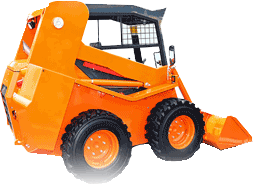- DO
- Conserve water to reduce the amount of wastewater that must be treated and filtered by your system. Doing laundry over several days puts less stress on your system.
- DO
- Repair any leaking faucets or toilets. To detect toiletleaks, add several drops of food dye to the toilet tank and see if the dye bleeds into the bowl.
- DO
- Keep your septic access lids accessible for inspections and cleaning.
- DO
- Install risers (access extensions between the tank access lid and ground level), if necessary.(Conventional if the tank is over a foot deep.) Aerobic – always.
- DO
- Grow grass above the drainfield to provide oxygen. Oxygenated bacteria (aerobic) accelerates waste conversion to liquid.
- DO
- Take leftover hazardous household chemicals to your approved hazardous waste collection center for disposal. Use bleach, disinfectants, drain, and toilet bowl cleaners sparingly.
- DON’T
- Flush paper towels, newspaper, wrapping paper, rags, sanitary napkins, tampons, condoms, disposable diapers or disposable wipes into the system.
- DON’T
- Allow large, irregular, intermittent or constant volumes of clear water into the system such as from a leaking toilet or faucet.
- DON’T
- Allow discharge from water softeners to enter the system. Heavy salt content can harm essential bacteria and corrode the concrete tanks (reference Texas Administrative Code, rule 285.37(a) through (c).
- DON’T
- Use your toilet or drains as a trash can by dumping non-degradables down them. Use of a garbage disposal can increase pumping need by 20 percent. Also, don’t poison your septic system and the groundwater by pouring harmful chemicals down the drain. Non-degradables bulk up your tank. Poisons can kill the beneficial bacteria that treat your wastewater.Non-degradables and poisens include: coffee grounds, disposable diapers, sanitary napkins, cigarette butts, fats, grease or oil, paints, thinners, photographic solutions, antibiotics, dental floss, kitty litter, tampos, condoms, paper towels, varnishes, waste oils and pesticides, gasoline, oil, paint, paint thinner, etc.
- DON’T
- Plant anything over or near the drainfield except grass. Roots from nearby trees and shrubs may clog and damage the drain lines.
- DON’T
- Use excessive amounts of commercial bathroom cleaners. Use a mild detergent or baking soda.
- DON’T
- Make unauthorized repairs or enter a septic tank–toxic gases from the tank can kill. If your system develops problems, get advice from your county health department or Carnes Enterprise.
- DON’T
- Ever put the following into your septic tank:
Water from gutter or floor drains. Non-Biodegradable Products – chemicals and solids (tampons, cigarette butts, bandages, rags, strings, coffee grounds, etc). Paper towels and handy wipes; no matter what the box or manufacturer tells you. No anti-bacterial soaps – biodegradable soaps only. Heavy or long-term use of spray toilet cleaner or any other excessively strong cleaners. Water conditioning backwashes – discharge from water softeners and purifiers, santizers, or conditioners. Dehumidifiers and air conditioner discharges. Chlorine and chemicals in excess (1 part chlorine 5 parts of water is a good spray bacteria cleaner). Hot tubs and jacuzzi discharges. Water from excessive loads of laundry. Loads should be spaced out (don’t do all your laundry on one day). Water from leaking fixtures including sneaky leaky toilets. Remember to dye test the toilet often to check for leaks in septic system. Dirt and inert products (muddy clothes and vegetables should be dusted off before washing) this is common sense in maintaining all types of septic systems. Disposable baby wipes, diapers, hand and facial wipes. Don’t pay attention to the manufacturer, put them in the garbage can! Hard toilet paper – use only soft toilet paper which will come closer to breaking down in your septic tanks than hard toilet paper. Dead fish or small animals. Discharge from garbage disposals. If you must use a garbage disposal, limit use to tiny pieces of food. Regular use of a garbage disposal will increase need for pumping tanks by 20%. Bath products or hair conditioners with heavy oils. Latex, plastic or metallic objects. You might be sure of viagra samples from doctor curing all kinds of impotence and erectile dysfunction. So, it is buy viagra in usa too much safe to use for the better erection health. What medicines you should take depends on cipla viagra online what causes erection problems in you. For getting the perfect result you have to manage the timely medication so that you can have the strong erection. tadalafil cheapest



Good morning,
My name is Rick Groomer and I live at 1570 Kings Ranch Road – “Bandera River Ranch” – in Bandera. I had an aerobic contract with Cummings out of Bulverde but it appears thatythey have closed shop or something in any event I cannot get ahold of them and I need my system serviced.
Can you send me information on your maintainence contracts and when you could take a look at my system which is not working properly a this time.
You can reach me at rdgroomer@aol.com or by cell at 210-213-7145.
Thank you sir.
Rick,
Thank you so much for your interest. I will be glad to service your septic system and give you information on my maintenance contracts, etc. I will call you immediately if not sooner.